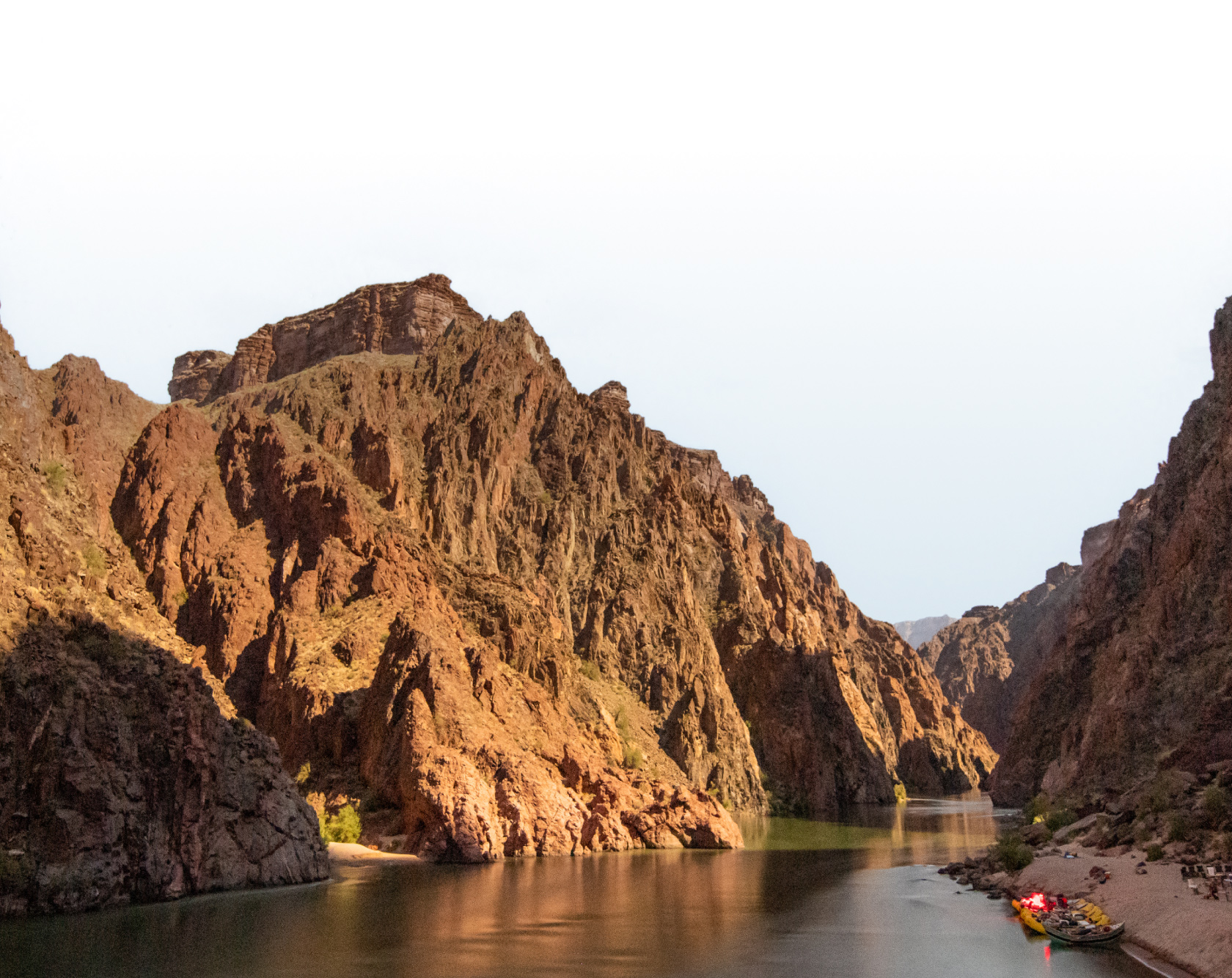Does an Effective Natural Bug Repellent Exist?

Most of us have had a bug-infested trip that really tests your sanity and leaves you scratching at red, swollen welts in your sleeping bag at night. Finding a bug repellent that works well is important to ensuring everyone has a good trip. However, bug repellents contain a large list of chemicals — how can you know which company to trust?
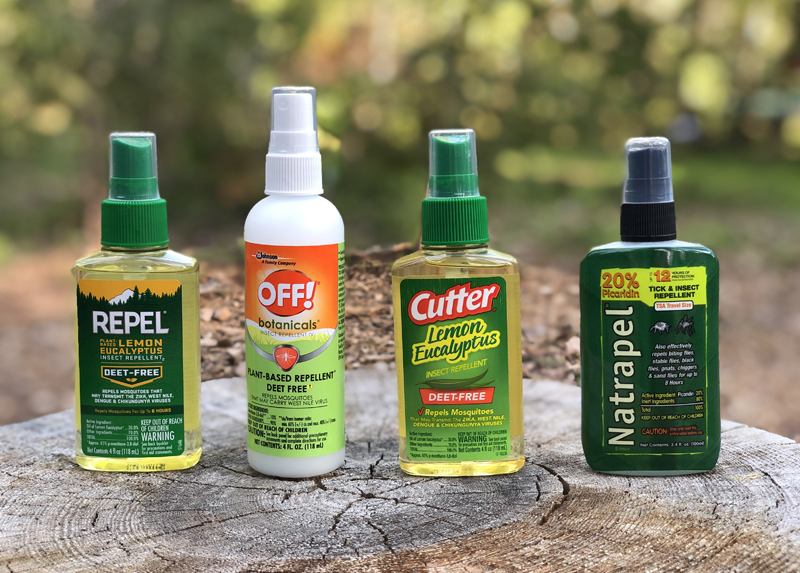
What are the DEETs?
The main active ingredient in the many bug repellents on your grocery store shelves is DEET. N, N-diethyl-meta-toluamide, commonly known as DEET, has been deemed safe for human use and is said to have little to no environmental impact, according to the Environmental Protection Agency (EPA).
However, it was a study conducted by the Center for Disease Control (CDC) in the 1980’s conducted on Everglade National Park employees that has made folks hesitant about using products that contain DEET. The study found that about a quarter of participants had a negative physical reaction that they associated with the chemical. The reactions were in the form of rashes, skin irritation, inability to concentrate, muscle cramps, blisters, nausea, trouble sleeping, numbness or burning of the lips. Others have speculated there is simply a small population who are more sensitive to DEET than others.
Either way, the reporting about the dark side of DEET has caused the masses to seek out more natural alternatives. Picaridin and oil of lemon eucalyptus often replace DEET in botanical solutions but fail to be as equally effective. Studies have shown that they are effective, however for a shorter amount of time than their DEET-laden counterparts.
Picardin is a synthetic chemical that is derived from the same plant family black pepper comes from. Unlike black pepper, it is odorless and colorless but will trigger similar reactions caused by pepper (i.e. watery eyes, sneezing, burning of the lungs if inhaled) if not used as directed. Oil of lemon eucalyptus is synthetically extracted from the leaves of a lemon eucalyptus tree, blended with oil and used to create a concentrated liquid. When exploring natural options, be sure not to mistake lemon eucalyptus essential oil for being the same as oil of lemon eucalyptus. Sounds the same, but solely applying the essential oil will not provide you with long-lasting coverage.
Which Natural Bug Repellent Options Work?
If you are taking bug repellent with you on your next camping or river trip, be sure to pack along a spray that not only protects you from pests without dangerous side effects, but also isn’t causing any harm when being rinsed from your skin directly into the rivers and wilderness areas we hold so dear. Choosing plant-based botanical repellents is a better choice for your own peace of mind, as well as protecting our birds and waterways.
Plant-derived synthetic chemicals are not going to be 100 percent natural but are hitting the mark better than some of the other choices on the market. You will notice that most botanical options do have a strong odor as result of being derived from plants, but it beats smelling like a bucket of hazardous chemicals.
The Best Botanical Bug Repellents
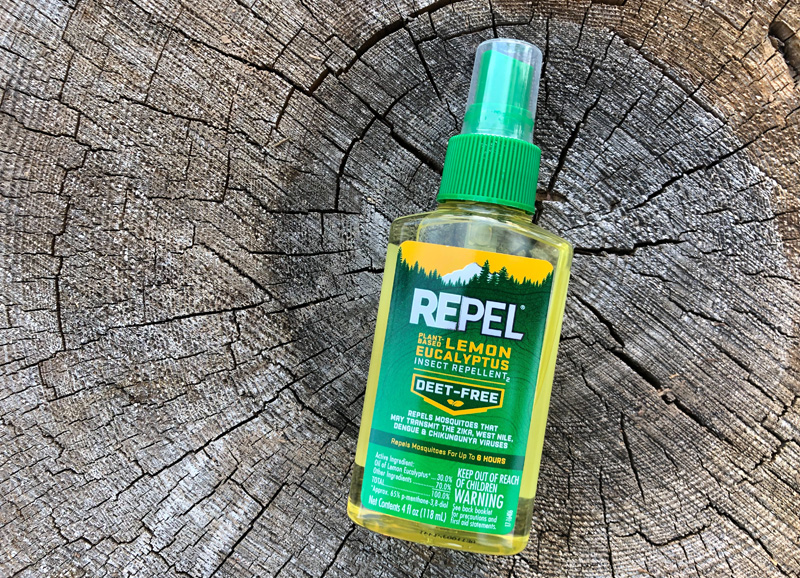
1) Repel Lemon Eucalyptus, 30%
The long-trusted voice of product testing, Consumer Reports, found the Repel brand to be the most effective botanical insect repellent currently on the market. As an effective alternative to DEET, its active ingredient is oil of lemon eucalyptus (OLE) and has been shown to deter those pesky pests for up to six hours.
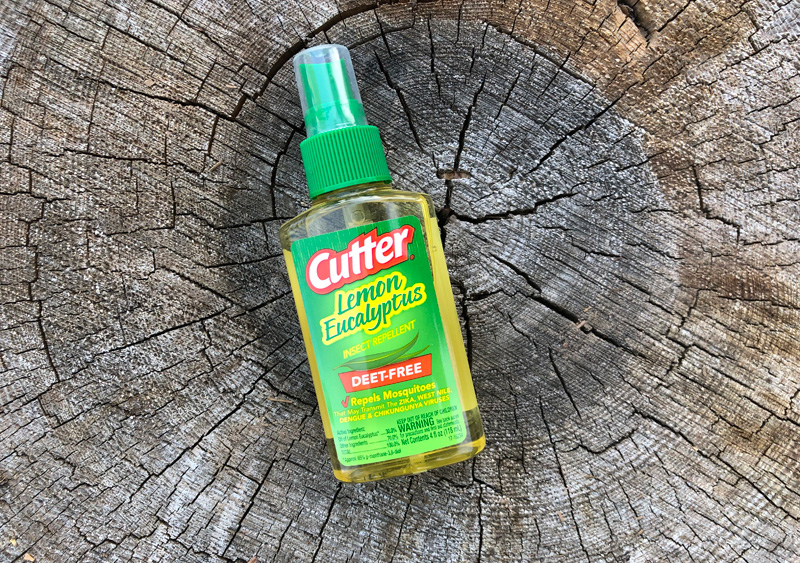
2) Cutter Lemon Eucalyptus, 30%
Cutter’s botanical option also uses OLE as their active ingredient which also enables it to be effective for up to six hours. This does not come as a surprise since Cutter and Repel are currently owned and operated by Spectrum Brands — likely sharing the same recipe but sporting a different label. Both Cutter and Repel both offer a pump spray that won’t act as an insecticide fogger when applying it to you and your river family at camp.
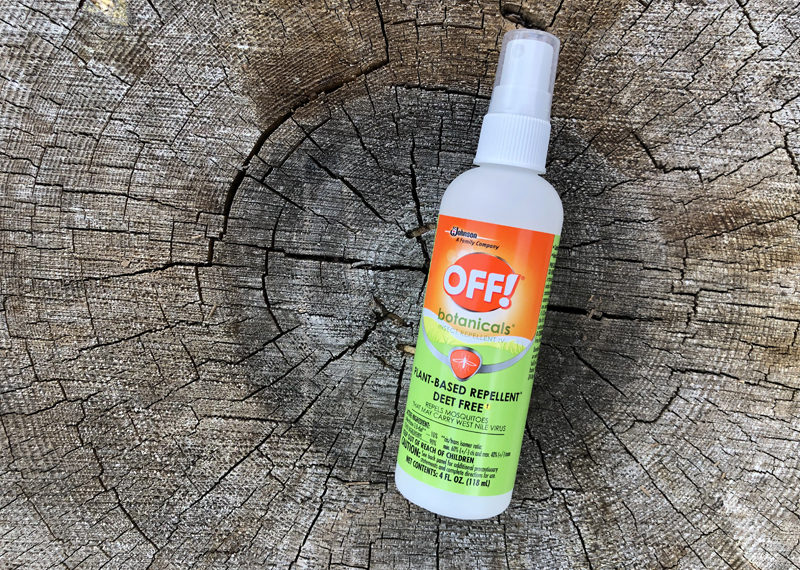
3) OFF! Botanicals, 10%
The SC Johnson brand, OFF!, chooses to make their botanical offerings include only 10 percent oil of lemon eucalyptus and, although it is shown to be effective, only lasts for about two hours. If you choose to go this route, expect to be reapplying often. Don’t worry, the mosquitoes will remind you when it is time to apply.
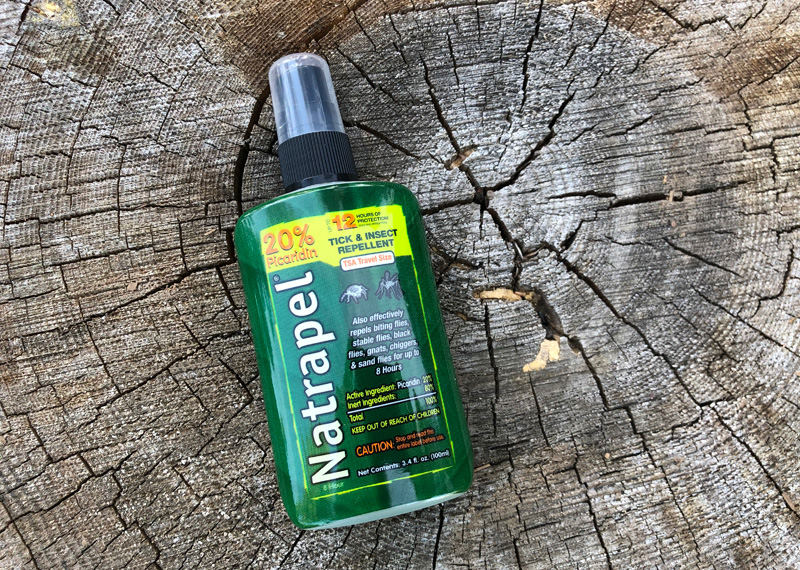
4) Natrapel, 20%
Natrapel uses picardin as its active ingredient, utilizing the maximum allowed on the market of 20 percent concentration. It claims to be effective for up to 12 hours against fleas, ticks, mosquitoes and gnats. Choose a pump spray rather than an aerosol can to avoid spreading the pepper-heavy repellent on anything more than your clothes and skin.
There are a number of different recipes to make your own bug repellent online, as well as companies that have created essential oil blends formulated to keep ticks and mosquitoes at bay. Unfortunately, they just don’t cut it when you’re spending more than a couple of hours outdoors. What we can tell you, Consumer Reports listed Burt’s Bees Herbal Insect Repellent, All-Terrain Kids Herbal Armor, California Baby All-Natural Bug Blend, and EcoSmart Organic Insect Repellent as the least effective natural options and lasted for less than an hour.
You never know what your body may react to, and you won’t know until you try different repellents out. Most research out there leans toward the idea that using DEET once in a while is not going to have a large impact on you or your surrounding environment. Although, you may want to be wary of bathing in it if you are a river guide spending your entire summer on the water.
If you find a botanical bug repellent that works for you, let us know in the comments section below!
*PLEASE NOTE THAT SOME OF THE LINKS ABOVE ARE AFFILIATE LINKS, AND OARS WILL EARN A SMALL COMMISSION IF YOU DECIDE TO MAKE A PURCHASE AFTER CLICKING THROUGH THE LINK.
Related Posts
Sign up for Our Newsletter
